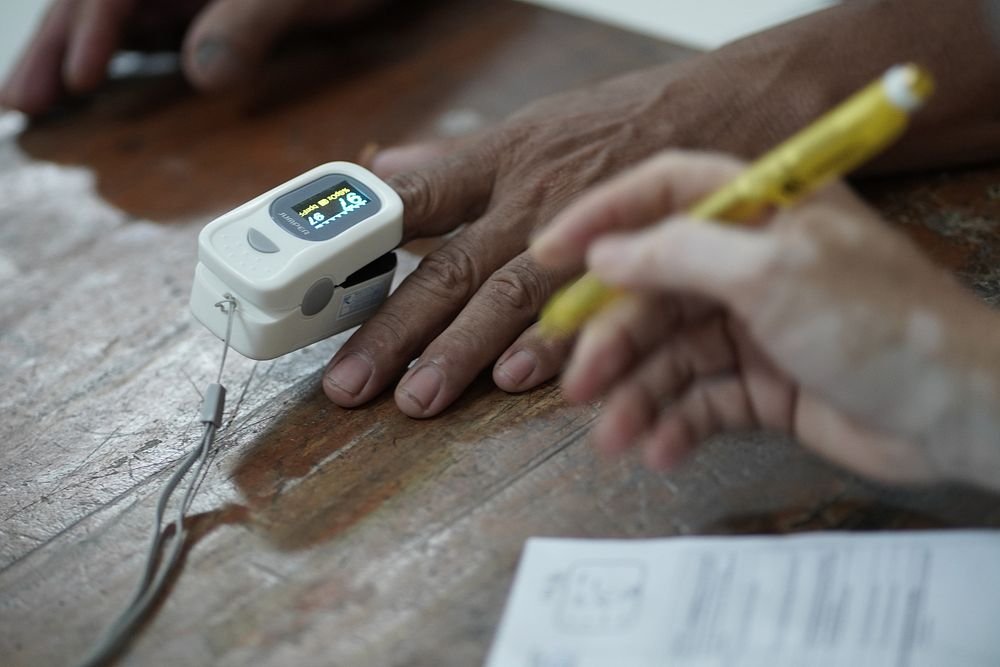9 Alarming Signs Your Blood Sugar Is Too High
Managing blood sugar levels is crucial for overall health. Chronically high blood sugar, or hyperglycemia, can lead to severe complications, particularly for those with diabetes. Recognizing early warning signs can help you address the problem before it escalates. Here are nine alarming signs that your blood sugar might be too high and what they mean for your health.

1. Excessive Thirst (Polydipsia)
One of the most common signs of high blood sugar is excessive thirst, medically referred to as polydipsia. When blood sugar levels rise, your body attempts to flush out the excess glucose through urine. This process dehydrates the body, triggering an unrelenting need to drink water.
Why It Happens:
High glucose levels draw water out of your cells, leaving you feeling parched. Even after drinking copious amounts of water, the thirst often persists until blood sugar levels are brought under control.
What to Do:
Monitor your water intake and test your blood sugar levels regularly. Staying hydrated is important, but the underlying glucose imbalance must be addressed through lifestyle adjustments or medical intervention.
2. Frequent Urination (Polyuria)
Frequent trips to the bathroom can be another red flag. Polyuria occurs because your kidneys work overtime to filter and eliminate the excess glucose in your bloodstream.
Why It Happens:
The kidneys have a threshold for glucose reabsorption. When blood sugar levels exceed this threshold, the kidneys excrete the extra glucose in urine, leading to increased urination.
What to Do:
Keep a log of your bathroom frequency. If you notice a significant increase without any apparent reason (like drinking more fluids), consult a healthcare professional.
3. Unexplained Weight Loss
Sudden and unintentional weight loss can occur even if you’re eating the same amount or more than usual. High blood sugar interferes with your body’s ability to properly utilize glucose for energy.
Why It Happens:
When your body can’t access glucose, it begins to break down fat and muscle for fuel. This process results in rapid weight loss, particularly in individuals with undiagnosed or poorly managed diabetes.
What to Do:
Track your weight changes and consult a doctor if the weight loss is unexplained. Proper blood sugar management can stabilize your weight.
4. Extreme Fatigue
Feeling drained and exhausted despite adequate rest? High blood sugar could be the culprit. Fatigue associated with hyperglycemia is more than just being tired—it’s a deep, unshakable weariness.
Why It Happens:
Excess glucose disrupts your body’s energy production. Instead of being efficiently converted to energy, glucose remains in your bloodstream, leaving cells starved of fuel.
What to Do:
A balanced diet with low glycemic index (GI) foods, regular exercise, and proper hydration can help combat fatigue. However, persistent exhaustion warrants medical attention.
5. Blurred Vision
If your vision suddenly becomes blurry or you struggle to focus, it could be a sign of elevated blood sugar. This symptom is often overlooked but can have serious implications.
Why It Happens:
High blood sugar causes fluid shifts in your eye lens, affecting its shape and your ability to focus. Over time, prolonged hyperglycemia can damage the retina, leading to diabetic retinopathy.
What to Do:
Don’t ignore vision changes. Visit an optometrist or ophthalmologist to rule out serious complications, especially if you have diabetes.
6. Slow-Healing Wounds and Infections
Cuts, sores, or infections that take unusually long to heal could indicate high blood sugar levels. Chronic hyperglycemia impairs the immune system and hinders the body’s natural healing process.
Why It Happens:
Elevated glucose levels create an environment where bacteria and fungi thrive, increasing the risk of infections. Additionally, high blood sugar damages blood vessels, reducing blood flow and oxygen delivery to wounds.
What to Do:
Keep wounds clean and monitor their healing. If infections persist or worsen, seek medical advice promptly.
7. Increased Hunger (Polyphagia)
Feeling hungry all the time, even after a meal, is another sign of high blood sugar. This constant hunger, known as polyphagia, is your body’s cry for energy.
Why It Happens:
When insulin isn’t effectively transporting glucose into your cells, your body interprets it as starvation and signals you to eat more.
What to Do:
Focus on meals rich in fiber, protein, and healthy fats to promote satiety. Avoid high-carb foods that can cause blood sugar spikes.
8. Tingling or Numbness in Hands and Feet
Nerve damage caused by prolonged high blood sugar, known as diabetic neuropathy, can lead to tingling, numbness, or a burning sensation in the extremities.
Why It Happens:
Excess glucose damages the tiny blood vessels that supply nerves, particularly in the hands and feet, causing neuropathy symptoms.
What to Do:
If you experience these sensations, consult a doctor. Early intervention can prevent further nerve damage.
9. Skin Changes and Dark Patches
Dark, velvety patches of skin, often on the neck, armpits, or groin, are a condition known as acanthosis nigricans. This can be an early sign of insulin resistance and elevated blood sugar.
Why It Happens:
Excess insulin in the bloodstream stimulates the growth of skin cells and melanin, resulting in darkened areas of skin.
What to Do:
These patches should not be ignored. They often indicate a need for lifestyle changes or medical evaluation.
Why High Blood Sugar Is Dangerous
If left unchecked, high blood sugar can lead to severe complications such as:
- Heart Disease: Increased risk of heart attacks and strokes.
- Kidney Damage: Chronic kidney disease or failure may develop.
- Nerve Damage: Permanent neuropathy can impair mobility and quality of life.
- Vision Loss: Diabetic retinopathy can lead to blindness.
- Ketoacidosis: A life-threatening condition caused by a lack of insulin.
When to Seek Medical Help
While occasional spikes in blood sugar can happen, persistent symptoms should not be ignored. Consult a healthcare professional if you notice multiple signs or have a fasting blood sugar level above 125 mg/dL.
Tips for Managing High Blood Sugar
- Adopt a Healthy Diet: Focus on whole foods, vegetables, lean proteins, and low-GI carbohydrates.
- Exercise Regularly: Physical activity helps your body use insulin more efficiently.
- Monitor Blood Sugar: Regular monitoring can help you track trends and avoid dangerous spikes.
- Stay Hydrated: Drinking water helps flush out excess glucose.
- Manage Stress: High stress levels can raise blood sugar. Practice mindfulness, yoga, or meditation.
Conclusion
Recognizing the signs of high blood sugar is the first step toward better health. Whether it’s excessive thirst, unexplained weight loss, or tingling in your extremities, these symptoms are your body’s way of signaling a problem. By taking proactive measures, such as maintaining a balanced diet, exercising, and consulting healthcare providers, you can effectively manage blood sugar levels and prevent long-term complications.
Supports healthy blood sugar levels and weight loss with Gluco6’s proprietary blend of 6 powerful ingredients backed by clinical research and groundbreaking science.
Go to the Gluco6 official website
